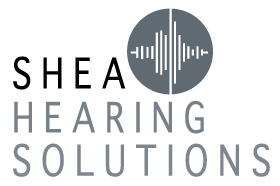9 do’s and don’ts when talking to a person with hearing loss

You generally can’t tell that someone has hearing loss just by looking at them. This can make conversation incredibly awkward and difficult. To curb some a potentially uncomfortable situation, we have compiled this list of do’s and don’ts when talking to someone with hearing loss.
Do face me and make and keep eye contact with me. If I can read lips, I can fill-in pieces of conversations that I may miss.
Don’t talk softly, whisper, or mumble especially if we are somewhere noisy. Loud background noises make it extremely difficult for me to decipher what you are saying.
Do take advantage of texting and email. This is the best way to communicate important information with me.
Don’t expect that I will hear you clearly on a cellphone. Cell mics pick up too much ambient noise.
Do schedules meetings in quiet areas with good lighting and as few as people as possible.
Don’t put me in a situation where hearing is hard, for example: conference calls or group meetings with people spread out.
Don’t assume all people with hearing loss can read lips or sign: Most people with hearing loss actually do not use sign language. So you should never start signing to someone with hearing loss as a way to communicate without asking them if they know how to sign. Similar to sign language, some people with hearing loss read lips, but not everybody does. Lip reading is beneficial to supplement residual hearing. Many people with hearing loss can pick up visual clues even if they are not proficient at lipreading.
Do ask me what accommodations I need.
Insetad of assuming that a person with hearing loss can read lips, find out what accommodations would actually be helpful to them by asking them. Maybe they need to sit closer to the speaker or they do need a sign language interpreter. Hearing loss is not a one size fits all condition and there is no singular solution.
Do try a different word if I am having difficulty understanding what you are talking about. Or repeat the entire sentence.
Don’t repeat only the word I say I didn’t catch.
Do ask me what specifically I didn’t understand and then try saying it in a different way.
Don’t say never mind, it’s not important or I’ll tell you later if I don’t catch something in a conversation. I deserve the option to decide for myself whether something is important or not.
Do help re-explain what was asked of me if I don’t answer correctly.
Don’t assume turning the volume up or talking louder will help me understand. Increasing the volume is only part of the solution; clarity is also essential. There also comes the point when increasing the volume will actually distort the sound quality. Yelling or over-articulating will not help either because these distort the natural speech rhythm and make lip reading much harder.
Do speak slowly and naturally, there’s no need to shout.
Don’t talk to me in short, simple words like you would to a child. I am a highly capable and intelligent person.Do Smile at me with understanding. Don’t feel sorry for me. I am fabulous.


